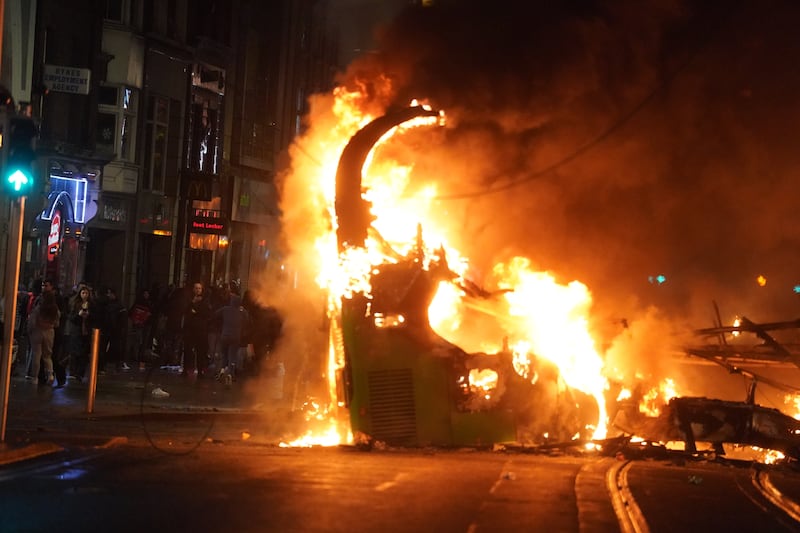If Mary and Joseph were to arrive in Ireland tomorrow night, they would probably be even less welcome than they were in Bethlehem over 2,000 years ago.
The Irish inn they were hoping to stay in would probably have suffered the same fate as a disused hotel in Galway, which was burned down this week, just as 70 asylum seekers were about to be housed there.
Should Mary and Joseph decide next month to stay here rather than opt for the flight into Egypt, the best they could expect would be the Irish government’s current provision for asylum seekers: €114 per week, plus a tent and a sleeping bag – and lots of local opposition.
Welcome to an Irish Christmas.
The standard explanation for protests against immigrants is racism. It is a convenient word, but it lacks an agreed meaning.
In the 19th xentury race was categorised by physical characteristics, such as skin colour, stature and hair type. This created three races: Caucasoid, Negroid and Mongoloid – a classification used in race laws until the 1960s in the US and 1994 in South Africa.
Today racism can mean antagonism towards any ethnic, religious or cultural group, which suggests that race in the eye of the beholder.
So, is “Brits out” a racist statement? Your answer will determine what you think a race is. Are the British a separate race from the Irish, are both made up of a variety of races, or are we all the one race?
If we are one race, are Ukrainians part of that same race? How did you decide? And what about Nigerians – are they the same race as the Irish?
So classifying the Dublin riots as racist is a sloppy explanation. The riots were anti-immigrant. History shows that immigration becomes an issue when large numbers of people arrive within a short time, into an already settled population, thereby causing competition for scarce resources.

The biggest migration in history was the movement of six million African Americans from rural, southern US states to northern industrial cities, between 1910 and 1970. It led to serious riots by white people, including the Irish.
In the 1919 Chicago riots, for example, the Irish incited Lithuanians and Poles to join them in fighting against the new African American immigrants. Back then the Irish employed a hierarchy of racism (and some of them probably still do).
Today almost one fifth of people in Ireland were born outside the state, having come here as asylum seekers, refugees or economic migrants. Adding that number of people to a population of four million over two decades required a proportionate increase in public services including health, housing, education and welfare.
There has been strong condemnation of a fire that broke out overnight at a Co #Galway hotel, that was due to start housing asylum seekers later this week. The blaze caused extensive damage to the Ross Lake House Hotel in Rosscahill. @AislingNiCTV reports 👇 pic.twitter.com/00uOQ0q98L
— Virgin Media News (@VirginMediaNews) December 17, 2023
The failure to provide such services has increased competition for scarce state resources, particularly health and housing, thereby causing a (largely unreported) shift in Irish political opinion. For example, two Fianna Fáil councillors supported protests against housing asylum seekers in the Galway hotel, which was later burned, thereby defying their own party’s immigration policy in government.
That political shift will have a major influence on the outcome of the next southern general election. Populist opinion appears to be swinging against any further immigration. The government recently recognised this by reducing the weekly jobseekers’ allowance for Ukrainians from €220 to €39.
If Mary and Joseph were to arrive here tomorrow night, they would become just two more immigrants sleeping on the streets of Dublin
Ireland’s future is no longer about integrating two million squabbling northerners into a united Ireland. The more pressing challenge is to integrate a million people born overseas into an Ireland with public services under pressure (which brings a whole new meaning to the concept of a united Ireland).
So if Mary and Joseph were to arrive here tomorrow night, they would become just two more immigrants sleeping on the streets of Dublin. That problem will remain until the government expands its social policy provision in line with Ireland’s increased population.
The absence of such policies will create a divided society in the south – and we have seen enough of that in the North to appreciate its consequences.

